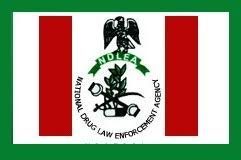
Speaking at the inauguration of the refurbished forensic laboratory on Wednesday in Lagos, Marwa highlighted the significant advancements made in the forensic laboratory, courtesy of the United States Bureau of International Narcotics and Law Enforcement Affairs.
“With this facility, we are now anticipating the provision of state-of-the-art analytical equipment, which will enhance optimal performance in line with standard operational laboratory procedures and best practices, which, in turn, will enhance evidence-based analytical processes in our forensic analysis,” he said.
Facilitated by INL and executed by the United Nations Office on Drugs and Crime, the project’s implementation was commended by Marwa, who acknowledged the pivotal role modern forensic laboratories play in successful drug investigations.
The NDLEA boss who was represented by the agency’s Director of Media and Advocacy, Femi Babafemi, emphasised the importance of modern forensic laboratories to the successful fight against illicit drugs in the country.
He added, “Everyone who knows how pivotal a forensic laboratory is to drug investigations will share my sentiment. The forensic laboratory plays a critical role in the identification of drug exhibits, in the investigation of illicit drug manufacturing and in the dismantling of clandestine laboratories. Ultimately, it reinforces the criminal justice system.”
He noted, “Given the current situation of illicit drugs in Nigeria, a forensic laboratory is a sine qua non for any meaningful effort to stymie the problem.”
Reflecting on the three decades of Nigeria’s evolution into a producer of various psychoactive substances and a hub for clandestine laboratories, Marwa highlighted the laboratory’s role in confirming the identity of over 10,000 exhibits seized in recent years.
“The inadequacy of the previous infrastructure prompted the intervention of INL to upgrade the laboratory to global standards, expanding its capacity to analyze new psychoactive substances, amphetamine-type stimulants, synthetic cannabinoids, and fentanyl opioids,” he said.
Marwa expressed gratitude to the US government for approving funding, outlining the project’s comprehensive scope, including strengthening forensic and chemical analysis capacity, upgrading interrogation rooms, and providing an e-library for prosecution.
He also lauded the UNODC for their meticulous implementation of the project.
The US Consul General, Will Stevens, acknowledged the ongoing security cooperation between the US and Nigeria, highlighting the $500,000 investment to ensure Nigerian partners have the necessary equipment and training to combat the opioid crisis.
The UNODC Deputy Country Representative, Danilo Campisi, commended the partnership with INL and NDLEA, expressing optimism for the next phase of the project.
He stated, “We look forward to continuing the tripartite partnership between UNODC, the US Government, and NDLEA, ensuring that criminal drug trafficking networks are dismantled and brought to justice.”





